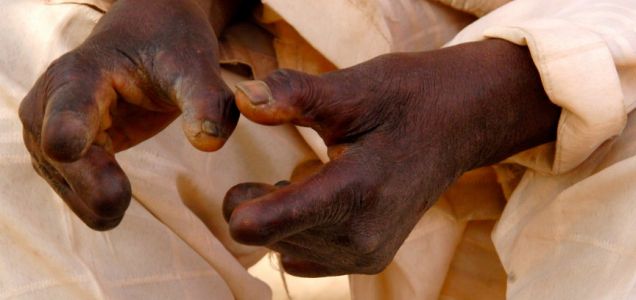The Lepers Aid Committee has disclosed that there are over 1000 Ghanaians living with leprosy.
According to the committee, although treatment and support towards lepers have been scaled up over the last few years a lot more could be done to improve their living conditions.
Leprosy is a chronic, progressive bacterial infection caused by the bacterium Mycobacterium leprae. It primarily affects the nerves of the extremities, the skin, the lining of the nose, and the upper respiratory tract. Leprosy is also known as Hansen’s disease.
Speaking on the Morning Starr Wednesday, a member of the legal aid committee Barbara Humphrey Ackumey said Ghanaians have been supportive of lepers so far.
“ In Cape Coast we have about 100 people suffering from leprosy, 125 in Ho, 100 in the North, 100 at Kokofu and more than 100 in Upper West. But conditions have been better, we have moved from days when it was just coins to support them. Now they are get GHC1 feeding fee on daily basis and it’s good but it could be better,” she said.
Backing the claim, the head of the Weija Leprosarium Rev. Father Andrew Campbell said conditions of lepers have improve over the years.
He commended Vice President Dr. Mahamudu Bawumia for his treatment of lepers.
“Things are much better… the Vice President’s gesture was a wonderful experience, it was house warmer. They were so happy and it was so good. The fact that the vice president served them and made sure they had enough food”.
On Sunday 9th December, 2018, Vice President Bawumia and his family organized an end of year party for over one hundred cured lepers, some of whom had been abandoned by their families in the leprosariums for over 60 years, at his home in Accra.
Assisted by the 2nd Lady, Hajia Samira Bawumia, and other officials including Minister for Gender, Children and Social Protection, Hon Cynthia Morrison, and the Administrator of the District Assembly Common Fund, Ms Naa Torshie Addo, Vice President Bawumia, who is also a Patron of the Lepers Aid Ghana, danced, sang and served food to the mainly middle aged and old men and women affected by the disease.
Source: Ghana/Starrfmonline.com/103.5FM




